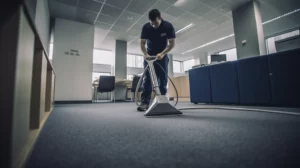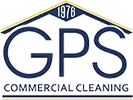Maintaining a clean office isn’t just about aesthetics; it’s a critical factor in enhancing employee productivity. In Billings, MT, the emphasis on office cleanliness has become a pivotal aspect of workplace management. But how exactly does a spotless environment contribute to better work performance?
Understanding Office Cleanliness
Definition and Scope
Office cleanliness encompasses both daily tidying and more intensive deep cleaning efforts. Daily cleaning involves routine tasks like emptying trash bins, wiping down surfaces, and vacuuming carpets. Deep cleaning, on the other hand, includes more thorough tasks like cleaning air ducts, shampooing carpets, and disinfecting high-touch areas.
Daily vs. Deep Cleaning
Daily cleaning ensures that the office remains in a state of minimal disarray, reducing the accumulation of dirt and clutter. Deep cleaning, performed less frequently, tackles areas that daily cleaning might miss, ensuring a comprehensive cleanliness that supports overall health and productivity.
Health Benefits of a Clean Office
Reduction of Germs and Allergens
A clean office significantly reduces the presence of germs and allergens, which can cause illnesses and allergic reactions. Regular disinfection of surfaces, proper waste disposal, and maintaining good air quality are vital practices.
Prevention of Illness
By minimizing the spread of pathogens, regular office cleaning can reduce the incidence of sick days among employees. This not only keeps the workforce healthy but also maintains productivity levels.
Psychological Benefits of a Clean Office
Impact on Employee Mood
A tidy workspace has a profound effect on employee mood. Clutter and dirt can lead to feelings of chaos and discomfort, while a clean environment fosters a sense of calm and order.
Reduction of Stress and Anxiety
A clean office reduces stress and anxiety levels. Employees are more likely to feel relaxed and focused when they are not distracted by mess and disorder.
Physical Benefits of a Clean Office
Ergonomic Benefits
Regular cleaning also involves arranging and maintaining ergonomic workspaces. Properly organized desks and equipment placement can prevent physical strain and injuries.
Safety and Accident Prevention
A clean office is a safe office. Regular cleaning and maintenance help prevent accidents, such as slips, trips, and falls, by keeping walkways clear and ensuring that equipment is in good working condition.
Boosting Employee Morale
Sense of Pride in the Workplace
Employees who work in a clean environment tend to take more pride in their workplace. This pride translates into better work performance and a more positive attitude.
Enhanced Team Spirit
A clean office can also enhance team spirit. When everyone contributes to maintaining cleanliness, it fosters a sense of community and shared responsibility.
Increasing Employee Focus
Reduction of Visual Clutter
Visual clutter can be incredibly distracting. By keeping the office tidy, employees can focus better on their tasks without unnecessary visual interruptions.
Improved Concentration
A clean workspace promotes better concentration. Employees can work more efficiently when their environment is organized and free of distractions.
Enhanced Professional Image
Impression on Clients and Visitors
A clean office makes a strong impression on clients and visitors. It reflects professionalism and attention to detail, which can enhance the company’s reputation.
Reflection of Company Values
Maintaining a clean office also reflects the company’s values. It shows that the company cares about the health and well-being of its employees and values a high standard of professionalism.
Long-Term Financial Benefits
Reduced Sick Days
Fewer sick days mean higher productivity and less disruption. A clean office can contribute significantly to the overall health of the workforce, leading to reduced absenteeism.
Increased Employee Retention
Employees are more likely to stay with a company that values their well-being. A clean and healthy work environment is a key factor in employee retention.
Implementation of Effective Cleaning Practices
Creating a Cleaning Schedule
An effective cleaning schedule is essential. It ensures that cleaning tasks are performed regularly and thoroughly, covering all areas of the office.
Hiring Professional Cleaning Services
Professional cleaning services can provide a higher level of cleanliness. They have the expertise and equipment to perform both daily and deep cleaning tasks efficiently.
Role of Management in Office Cleanliness
Encouraging Employee Participation
Management should encourage employees to keep their workspaces clean and tidy. Providing the necessary resources and setting clear expectations can help achieve this.
Setting Cleanliness Standards
Management should also set and enforce cleanliness standards. This ensures that everyone in the office understands the importance of maintaining a clean environment.
Tools and Techniques for Effective Cleaning
Modern Cleaning Equipment
Utilizing modern cleaning equipment can make the cleaning process more efficient and effective. High-quality vacuum cleaners, steam cleaners, and air purifiers are essential tools.
Eco-Friendly Cleaning Products
Using eco-friendly cleaning products is not only good for the environment but also
beneficial for employee health. These products reduce the exposure to harmful chemicals.
Employee Involvement in Maintaining Cleanliness
Daily Habits for a Cleaner Office
Employees can adopt simple daily habits to maintain a cleaner office,

Professional Commercial Cleaners
such as wiping down their desks, organizing their papers, and properly disposing of trash.
Employee Training Programs
Training programs can educate employees on the importance of cleanliness and how to maintain it. This can include demonstrations of effective cleaning techniques and the use of cleaning products.
Summing Up the Benefits
In conclusion, regular office cleaning plays a crucial role in enhancing employee productivity in Billings, MT. The health, psychological, and physical benefits of a clean office are significant. By implementing effective cleaning practices and involving employees, companies can create a healthier, more productive work environment.
Contact GPS Commercial cleaning today, and learn how to increase productivity in your professional office space.
FAQs
How often should an office be cleaned?
An office should be cleaned daily for basic tasks and undergo deep cleaning at least once a month to ensure thorough cleanliness.
What are the best cleaning practices for offices?
The best practices include regular disinfection of surfaces, proper waste disposal, maintaining good air quality, and using eco-friendly cleaning products.
How does office cleanliness impact employee health?
Office cleanliness reduces the presence of germs and allergens, preventing illnesses and promoting better overall health.
Can a clean office really boost productivity?
Yes, a clean office can significantly boost productivity by reducing distractions, preventing illnesses, and creating a more pleasant work environment.
What are some cost-effective ways to maintain a clean office?
Cost-effective ways include creating a cleaning schedule, encouraging employee participation, and using efficient cleaning tools and eco-friendly products.





